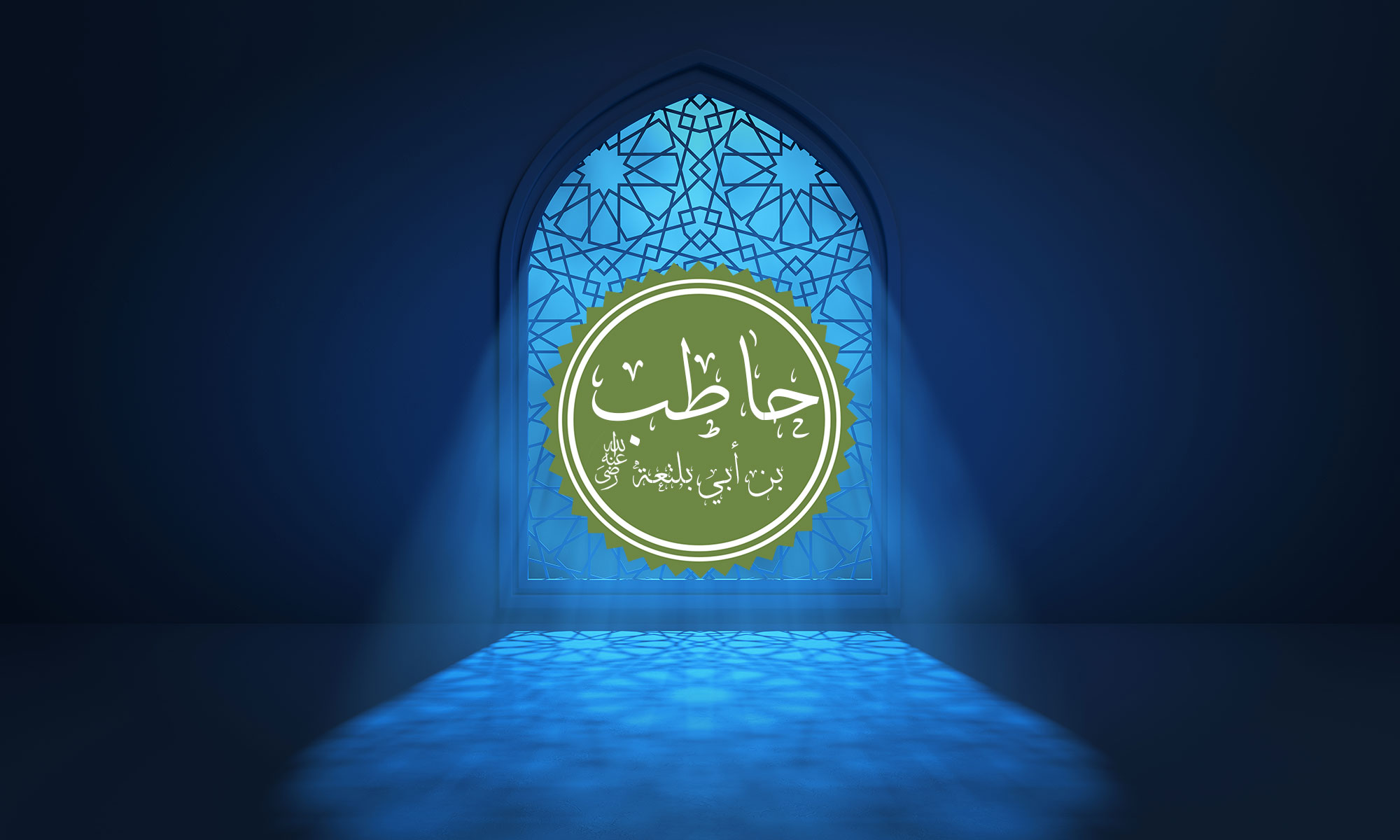The Companion Hatib ibn Abi Balta'ah

Hatib ibn Abi Balta'ah bin Amr bin Umayr bin Salama Al-Lakhmi was a companion who participated in the Battle of Badr. He embraced Islam and migrated with the Muslims to Yathrib, accompanied by Saad bin Khawli, the freedman of Hatib. He settled with Al-Munthir bin Muhammad bin Uqba. The Prophet Muhammad (PBUH) formed a bond of brotherhood between him and Rahi'lah bin Khalid. Hatib participated with the Prophet (PBUH) in his expeditions, including the Battle of Badr, the Treaty of Hudaybiyyah, and the Conquest of Makkah.
In the 6th year of Hijrah, the Prophet (PBUH) sent him a letter to the Muqawqas, the ruler of Egypt, inviting him to Islam. The Muqawqas sent back with Hatib two women, Maria and her sister Sirin, as a gift to the Prophet (PBUH). Hatib is also known for narrating Hadith, which was transmitted by his sons, Abdul Rahman bin Hatib, Yahya bin Hatib, and Urwah bin Az-Zubayr.
The Characteristics and Biography of Hatib Before Islam
Hatib was known for his strong physical appearance, well-built body, and light beard. He was of shorter stature and had a slightly hunched back, with thick fingers. In the pre-Islamic period, Hatib was a client (hilyf) of the Banu Asad bin Abd al-Uzza tribe.
He was also said to be a freedman (mawla) of Ubaid bin Hamid bin Zuhayr bin Harith. His physical traits, along with his tribal affiliations, were part of his identity before embracing Islam, reflecting the social dynamics and relationships of the time.
The Story of Hatib ibn Abi Balta'ah During the Conquest of Makkah
The Prophet Muhammad (PBUH) summoned Ali and Zubair, saying: "Go until you catch up with a woman who has a letter with her, and bring it to me." They met her and asked for the letter, informing her they would not leave until they took it from her. She asked, "Aren't you Muslims?" They replied, "Yes, but the Messenger of Allah (PBUH) informed us that you have a letter." She then removed the letter from her head, and they took it to the Prophet (PBUH). The letter from Hatib to the Quraysh revealed the Prophet’s plan to march on Makkah.
The Prophet (PBUH) called Hatib to read the letter aloud. Hatib admitted to it, explaining that he had family and children in Makkah and, being a stranger among the Quraysh, he was worried for their safety. Umar ibn al-Khattab, who was present, said: "O Messenger of Allah, allow me to kill him." The Prophet (PBUH) responded: "No, for he was a participant in the Battle of Badr, and you do not know, perhaps Allah has looked at the people of Badr and said: 'Do whatever you want, for I have forgiven you.'" (Siyar A'lam al-Nubala)
In response to this incident, the following verse was revealed by Allah:
“O you who have believed, do not take My enemies and your enemies as allies, offering them friendship while they have disbelieved in what has come to you of the truth, having driven out the Messenger and yourselves because you believe in Allah, your Lord. If you have come out for jihad in My cause and seeking My pleasure, then do not take them as allies. And I know best what you have hidden and what you have declared. And whoever does so among you has certainly strayed from the soundness of the way.”
(Surah Al-Mumtahina, 60:1)
According to Ibn Taymiyyah, scholars agree that this story is authentic and is well-known among tafsir, hadith, sirah, and jurisprudence scholars.
Hatib's sending a letter to the Quraysh about the Prophet's plans was not an act of treason but rather a concern for his family living in Makkah. Unlike the other Muslims who had family ties protecting their loved ones, Hatib was trying to ensure his family's safety by offering a service to the disbelievers. When the Prophet (PBUH) learned of this, he forgave him, recognizing that Hatib participated in the Battle of Badr.
The Death of Hatib ibn Abi Balta'ah
Hatib passed away in Medina in 30 AH at the age of 65. Uthman ibn Affan, may Allah be pleased with him, performed his funeral prayer. At his death, Hatib left behind 4,000 dirhams, dinars, and a house for his children.